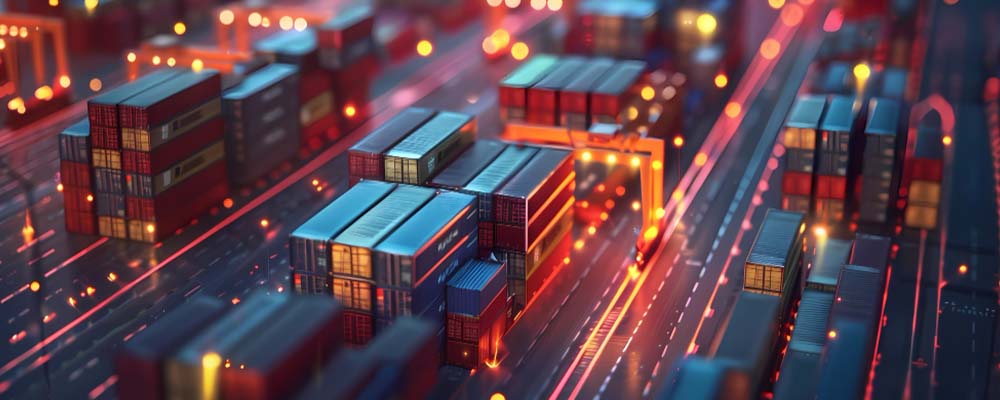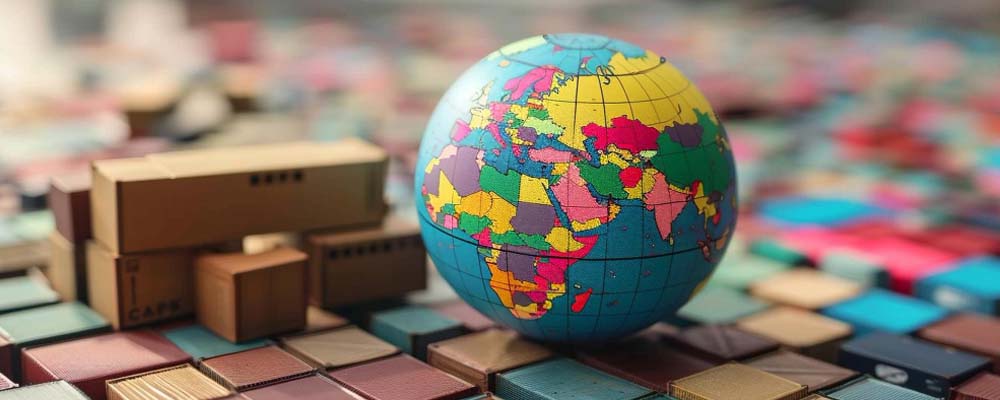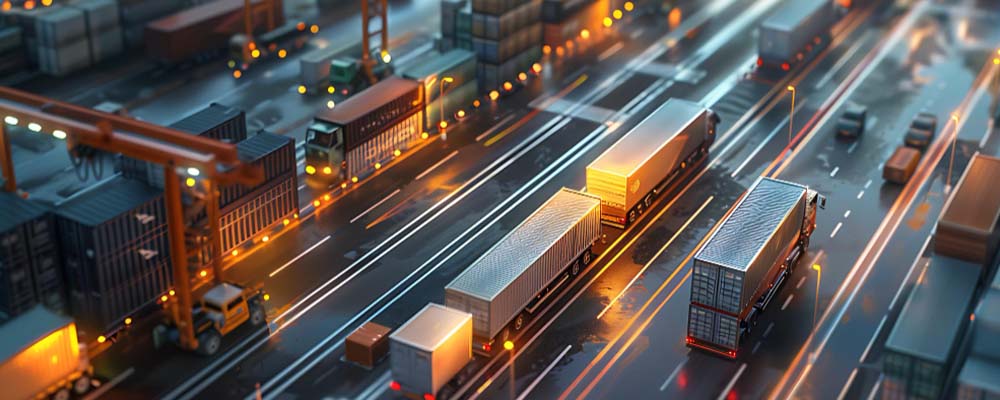
Brazil is a global giant, not just in terms of geography and population, but also in its vibrant and dynamic trade landscape. For logistics providers, freight forwarding companies, and industry stakeholders, understanding Brazil’s main exports and imports is crucial. This blog post will provide valuable insights into Brazil’s key products, the global demand for these commodities, and the economic impact of imports. We’ll also discuss the indispensable roles of customs brokers and freight forwarders in this complex ecosystem.
Brazil’s Main Exports
Brazil’s export portfolio is diverse, boasting a range of agricultural products, minerals, and manufactured goods. In 2022, Brazil exported goods worth approximately $280 billion. Here’s a closer look at some of the key products:
Agricultural Powerhouse
Soybeans are Brazil’s top export, accounting for nearly 14% of total exports. The country shipped over $39 billion worth of soybeans, primarily to China, which is the largest consumer of Brazilian soy.
Coffee is another significant export, contributing around $5.6 billion to the economy. Brazil is the world’s largest coffee producer, with major markets in the United States and Germany.
Mineral Wealth
Brazil is rich in iron ore, which represents about 11% of its total exports. In 2022, iron ore exports were valued at $30 billion, with China again being the primary buyer.
Gold is also a major export, with the country earning about $4.2 billion annually. Key buyers include Switzerland and India.
Manufactured Goods
Brazil’s automotive industry is robust, with vehicles and auto parts constituting around 4% of the country’s exports. These products are mainly exported to Argentina and Mexico.
Aircraft and related parts are another important export category, contributing approximately $4 billion annually. The United States remains the largest market for Brazilian aircraft.
A Diverse Portfolio
Brazil also exports sugar, poultry, beef, and forest products like paper and pulp. These products collectively bring in billions of dollars, showcasing Brazil’s diverse export landscape.
 The Global Demand for Brazilian Products
The Global Demand for Brazilian Products
The international market’s appetite for Brazilian goods is driven by several factors, including quality, price, and strategic trade partnerships.
Quality and Sustainability
Brazilian agricultural products are renowned for their high quality. For instance, Brazilian coffee’s rich flavor profile makes it a preferred choice globally. Similarly, the country’s beef and poultry are favored for their taste and texture.
Competitive Pricing
Brazil’s vast natural resources allow it to produce commodities like soybeans and iron ore at competitive prices. This affordability is a significant factor driving global demand.
Strategic Trade Partnerships
Brazil has established strong trade ties with several countries. China, the United States, and Argentina are among its top trading partners. These relationships are bolstered by trade agreements and shared economic interests.
Brazil’s Main Imports
While Brazil is a leading exporter, it also relies on imports to meet various domestic needs. In 2022, Brazil imported goods worth about $215 billion. Here are some of the key imports:
Industrial Machinery and Equipment
Brazil imports substantial amounts of industrial machinery, valued at around $30 billion. These imports are essential for the country’s manufacturing and mining sectors. The primary suppliers include the United States, Germany, and China.
Chemical Products
Chemicals and related products constitute a significant portion of Brazil’s imports, totaling approximately $25 billion annually. These imports are crucial for Brazil’s industrial and agricultural sectors.
Fuel and Energy
Brazil imports around $20 billion worth of crude oil and refined petroleum products. These imports are necessary to meet the country’s energy demands. The main suppliers are the United States and Saudi Arabia.
Electronics and Technology
Electronics and IT equipment are also major imports, contributing about $15 billion annually. These products are vital for Brazil’s growing tech industry. Key suppliers include China, South Korea, and the United States.
Automotive Parts
Brazil’s automotive industry relies on imported auto parts, which amount to approximately $12 billion annually. These imports are sourced mainly from Argentina, Germany, and China.
 The Impact of Imports on the Brazilian Economy
The Impact of Imports on the Brazilian Economy
Imports play a pivotal role in Brazil’s economy by supplementing domestic production and meeting consumer demand.
Boosting Industrial Growth
The import of industrial machinery and equipment supports Brazil’s manufacturing sector, enabling it to produce high-quality goods for both domestic consumption and export.
Enhancing Agricultural Productivity
Imported chemicals and fertilizers are crucial for Brazil’s agricultural sector. These imports help improve crop yields and quality, supporting Brazil’s position as a global agricultural powerhouse.
Meeting Energy Needs
Brazil’s reliance on imported fuel and energy products is essential for maintaining its energy infrastructure. These imports are vital for powering industries, transportation, and households.
Supporting Technological Advancement
Imports of electronics and IT equipment are driving technological advancement in Brazil. These imports support various sectors, including finance, healthcare, and education.
The Role of Customs Brokers and Freight Forwarders
Customs brokers and freight forwarders are indispensable in navigating the complexities of international trade. Their expertise ensures smooth and efficient movement of goods across borders.
Ensuring Compliance
Customs brokers play a critical role in ensuring that all imports and exports comply with international trade regulations. They handle documentation, tariffs, and duties, minimizing the risk of delays and penalties.
Streamlining Logistics
Freight forwarders coordinate the transportation of goods, optimizing routes and managing logistics to ensure timely delivery. They work with various carriers and service providers, streamlining the supply chain.
Providing Expertise
Both customs brokers and freight forwarders offer valuable insights and advice on trade regulations, market trends, and best practices. Their expertise empowers businesses to make well-informed decisions and enhance their operational efficiency.
 Conclusion
Conclusion
In conclusion, Brazil’s trade landscape is a dynamic and complex ecosystem, with diverse exports and imports playing crucial roles in the economy. For freight forwarding companies, logistics providers, and other industry stakeholders, understanding these dynamics is essential for success.
By leveraging the expertise of customs brokers and freight forwarders, businesses can navigate the complexities of international trade, ensuring compliance and efficiency. Whether you’re an importer, exporter, or logistics provider, staying informed about Brazil’s trade landscape is key to optimizing your operations and achieving long-term success.
For those looking to explore further, consider reaching out to us to stay updated on the latest trends and best practices in international trade.




 The Global Demand for Brazilian Products
The Global Demand for Brazilian Products The Impact of Imports on the Brazilian Economy
The Impact of Imports on the Brazilian Economy Conclusion
Conclusion



